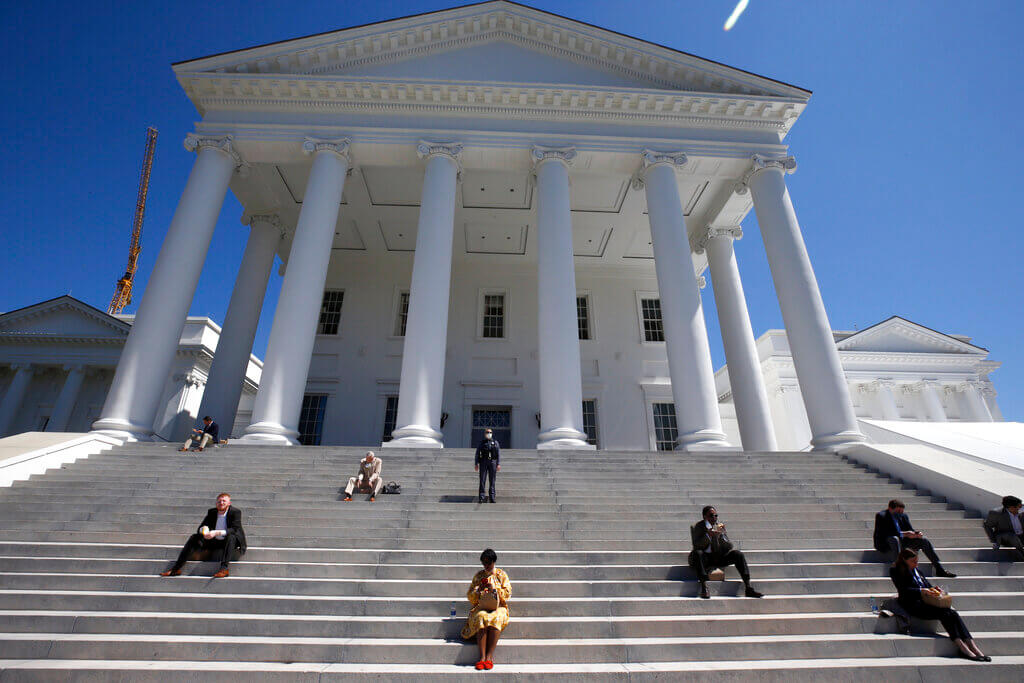
This truly will be a “short” Assembly session, as lawmakers reject a more than 50-year tradition.
RICHMOND-The more things change, the more they stay the same. As the Virginia General Assembly opened for a new session Wednesday, in many ways things were right where we left off last fall. Democrats wanted to expand the session, Republicans wanted to limit it and several members struggled to work the mute button on their computer.
But more than that, there was a simple refusal to work together. A decision in prior years that took 10-15 minutes took up most of the afternoon, as both parties argued over how long the session should be. Article IV, Section 6 of the Virginia Constitution spells out how long each session should last.
“No regular session of the General Assembly convened in an even-numbered year shall continue longer than 60 days,” the Constitution says. “No regular session of the General Assembly convened in an odd-numbered year shall continue longer than 30 days.”
As 2021 is an odd numbered year, that puts it in the 30 days or less category. There is, however, one way to change that. It takes a vote “of two-thirds of the members elected to each house,” which then allows the session to be extended for another 30 day period.
Over the last 50 years, the Assembly’s followed a simple tradition. The majority party asks for an extension, the minority group agrees and the vote goes through. Then the session lasts for roughly 45 to 46 days on average, instead of the original 30. This year, however, Republicans made it clear even before the session started that they planned to object.
RELATED: Virginia Republicans Plan to Hold General Assembly Hostage
No Majority for Expansion
Republicans offered two reasons for this objection. First, House Minority Leader Todd Gilbert (R-Shenandoah) said the Assembly’s spent enough time in Richmond. He argued they just needed to address the budget and go home.
“We spent approximately 150 days in session last year, 84 of which, more or less, were in special session to tweak the budget and address the pandemic,” Gilbert said, adding that he felt the budget became an afterthought to criminal justice reform. “To suggest that we need to spend an entire off year [session], [the same] 45 days that we have in the past to address mainly that budget, we just did that two months ago.”
That argument didn’t sit well with Del. Alfonso Lopez (D-Arlington). He pointed out that Virginia currently has more than 412,000 cases of COVID-19, with 4,598 coming on Tuesday alone.
“Despite moving forward, thankfully, with the vaccine, Virginians are still getting sick,” Lopez said. “But our Republican colleagues want to work less. Families need a hand up, but our Republican colleagues want to work less. Small businesses are hurting, but our Republican colleagues want to work less.”
He argued now was when the Assembly should be in session, to govern and make things easier on residents.
“Our constituents and all Virginians deserve better than this,” Lopez said. “Our Republican colleagues say we don’t have the time to solve the challenges our Commonwealth faces and yet they’re the ones attempting to cut the session short. If Republicans have a better place to be, they should let the rest of us do our job.”
A Change From Virtual
Gilbert shifted his argument, saying Republicans would consider an extension if the House met in person. Since the pandemic started, the Virginia House and Senate chose two different ways of handling meetings. The House holds their sessions virtually, with delegates working from home. The Senate meanwhile meets in person. Even then, members are limited with how they can meet with lobbyists and other groups.
This isn’t the first time Republicans have argued to reopen the General Assembly. Sen. William DeSteph filed a lawsuit back in December. He argued keeping buildings closed to the public was a violation of the First Amendment. The judge didn’t agree. Even so, House and Senate leaders agreed to find ways for groups to meet. House meetings, however, remain virtual.
“We have been relegated to conducting this session, the people’s business, in this virtual environment,” Gilbert said. “The best we can do in this environment is simply not up to what the expectations of the public should be.”
House Majority Leader Charniele Herring (D-Alexandria) pointed out, however, that technical issues won’t go away just because a meeting’s in person.
“This iis not ideal, but it’s not ideal either that people are facing eviction,” Herring said. “It is not ideal that we are suffering in this pandemic. [It] is not ideal that we hear about a hospital in one of our colleagues’ districts where people have to sit in wheelchairs because they don’t have a bed. It is not ideal that businesses have been hit hard.”
The vote, when it came, was along party lines. And while more people supported than opposed, it wasn’t a two-thirds majority. That means the session stays at 30 days.
Brian Carlton is Dogwood’s managing editor. You can reach him at [email protected].
Politics

Biden administration bans noncompete clauses for workers
The Federal Trade Commission (FTC) voted on Tuesday to ban noncompete agreements—those pesky clauses that employers often force their workers to...

Democratic shakeup in Virginia primaries for governor, lieutenant governor
Richmond Mayor Levar Stoney quit his bid for governor and jumped into the race to be the Democratic nominee for lieutenant governor. The race for...
Local News

The zodiac signs of 12 iconic women offer insight into their historic accomplishments
Zodiac signs can tell you a lot about someone’s personality. Whether they’re an earth, water, air, or fire sign, these 12 categories (which are...

Virginia verses: Celebrating 5 poetic icons for National Poetry Month
There’s no shortage of great writers when it comes to our commonwealth. From the haunting verses of Edgar Allan Poe, who found solace in Richmond's...




